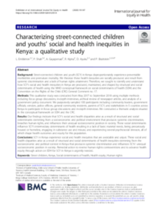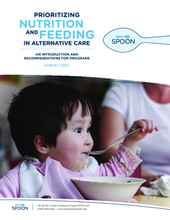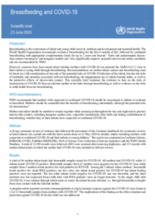Displaying 11 - 20 of 243
The aim of this study was to explore the experiences of Victorian foster and kinship carers in accessing health services for children in their care and to quantify the frequency of potential barriers to health care.
This study sought to identify and understand how street-connected children and youth (SCY)’s social and health inequities in Kenya are produced, maintained, and shaped by structural and social determinants of health using the WHO conceptual framework on social determinants of health (SDH) and the Convention on the Rights of the Child (CRC) General Comment no. 17.
This case report depicts the quest for health insurance coverage of two HIV orphans with Burkitt lymphoma in Kenya.
Co-sponsored by Bread for the World, The Chicago Council on Global Affairs and 1,000 Days, this webinar heard first-hand accounts from a doctor on the front lines; from a researcher who is a core member of the Standing Together for Nutrition coalition and studying program adaptations in the context of the pandemic; and from a storyteller who shared best practices (and turnkey resources) to bring these stories to life to inspire leaders to act.
In this blog post, the authors call attention to the "malnutrition epidemic" that the world's children are currently facing, exacerbated by the COVID-19 pandemic.
This paper draws upon lessons from SPOON Foundation's work in 17 countries since 2008, summarizing the main nutrition considerations for children in alternative care and offering recommendations on integrating nutrition and feeding practices into alternative care programs. This paper also explores ways that nutrition can support the global movement to ensure every child has family-based care, while meeting the immediate needs of the millions of children currently in all types of alternative care.
The authors of this comment explore their initial analyses and estimates regarding the impacts of the COVID-19 pandemic on children's nutrition and note that these projections emphasise the crucial need for actions to protect child nutrition.
This comment piece from the Lancet describes the impacts of the COVID-19 pandemic on children's nutrition, noting that vulnerable families, particularly in low- and middle-income countries (LMICs) are struggling to access the food and services they need in the context of an economic downturn.
This study examines how food insufficiency relates to HIV infection among caregivers of orphans and vulnerable children (OVC) in Tanzania.
This scientific brief examines the evidence to date on the risks of transmission of COVID-19 from an infected mother to her baby through breastfeeding as well as evidence on the risks to child health from not breastfeeding.



